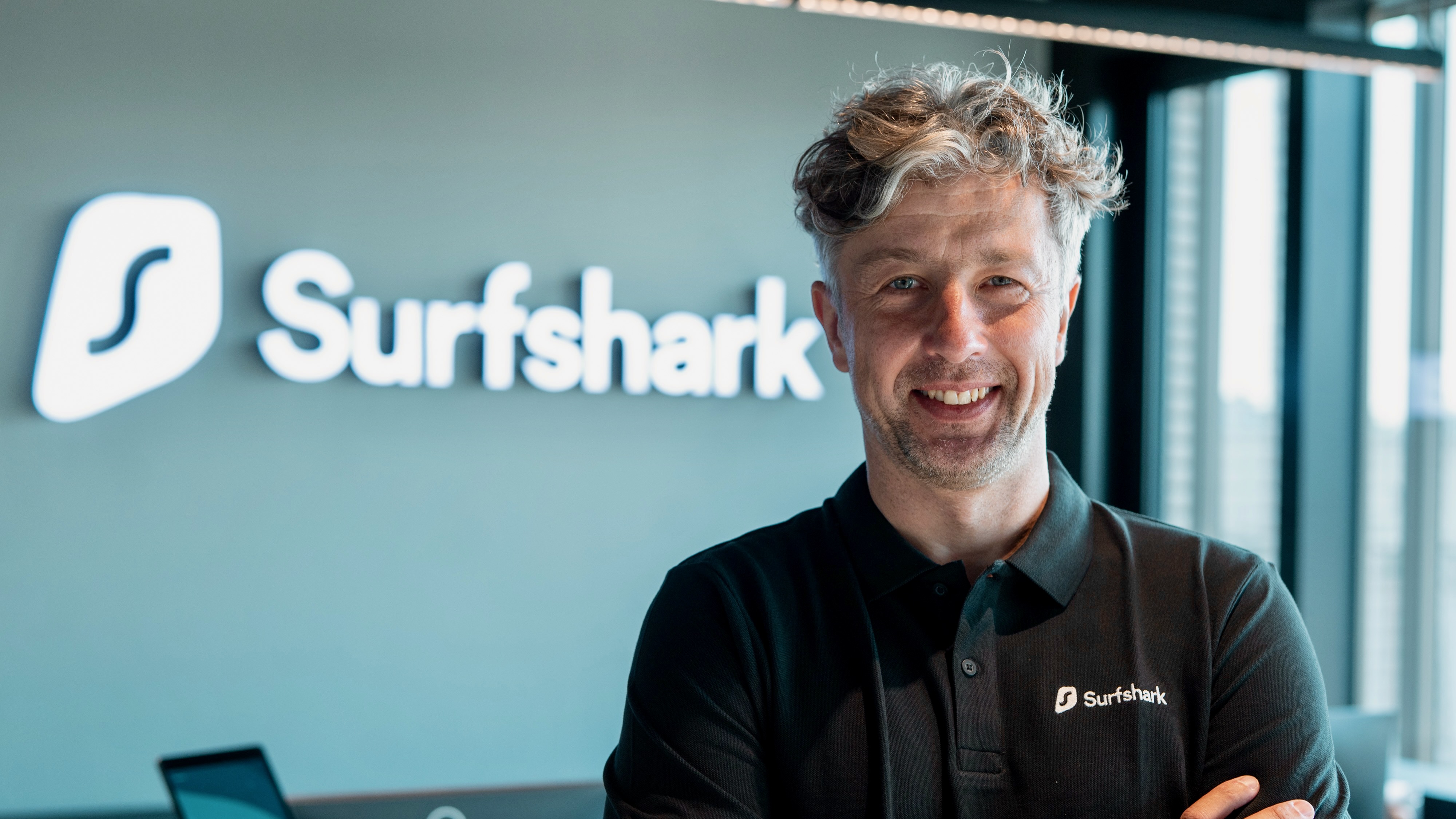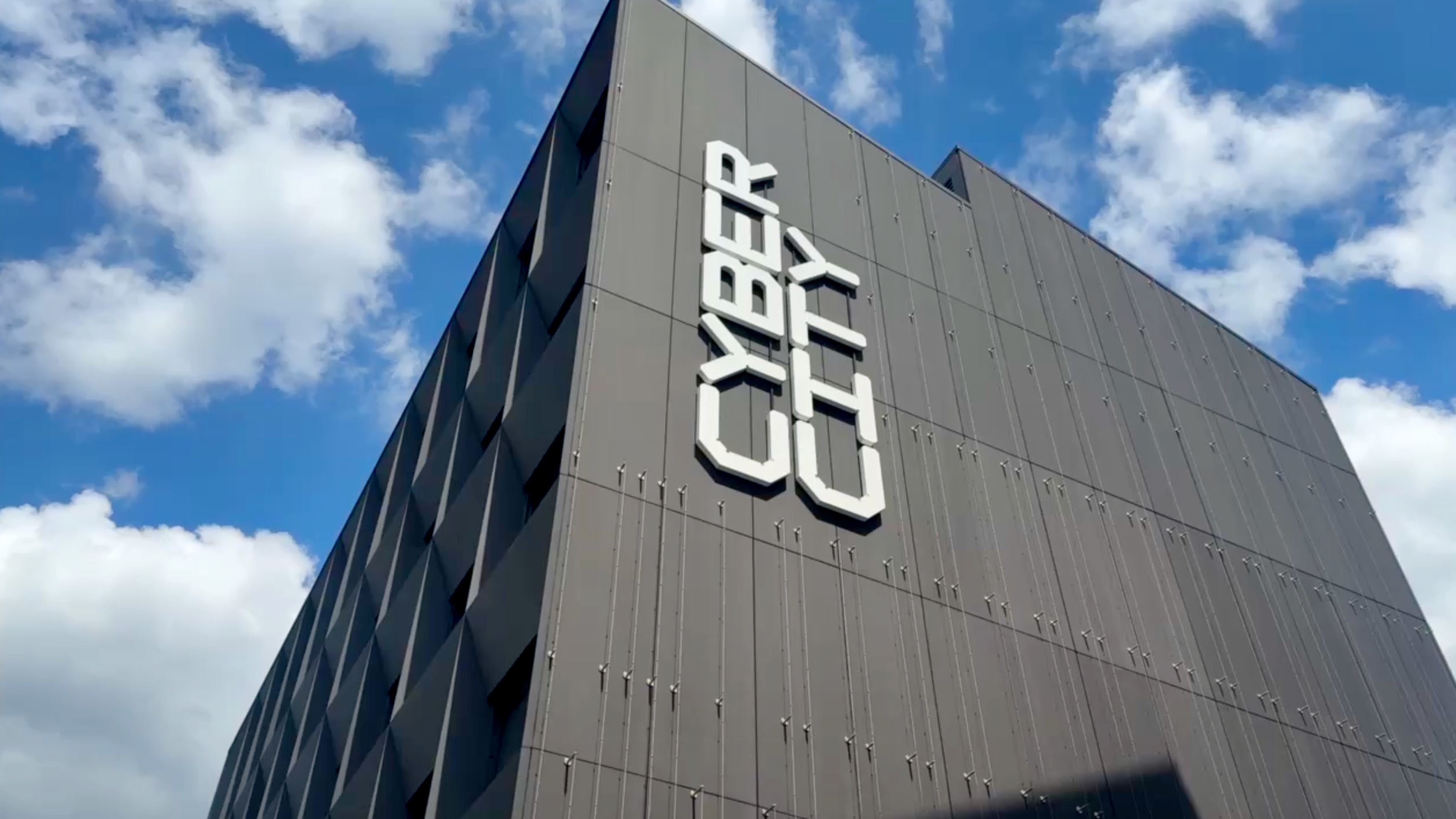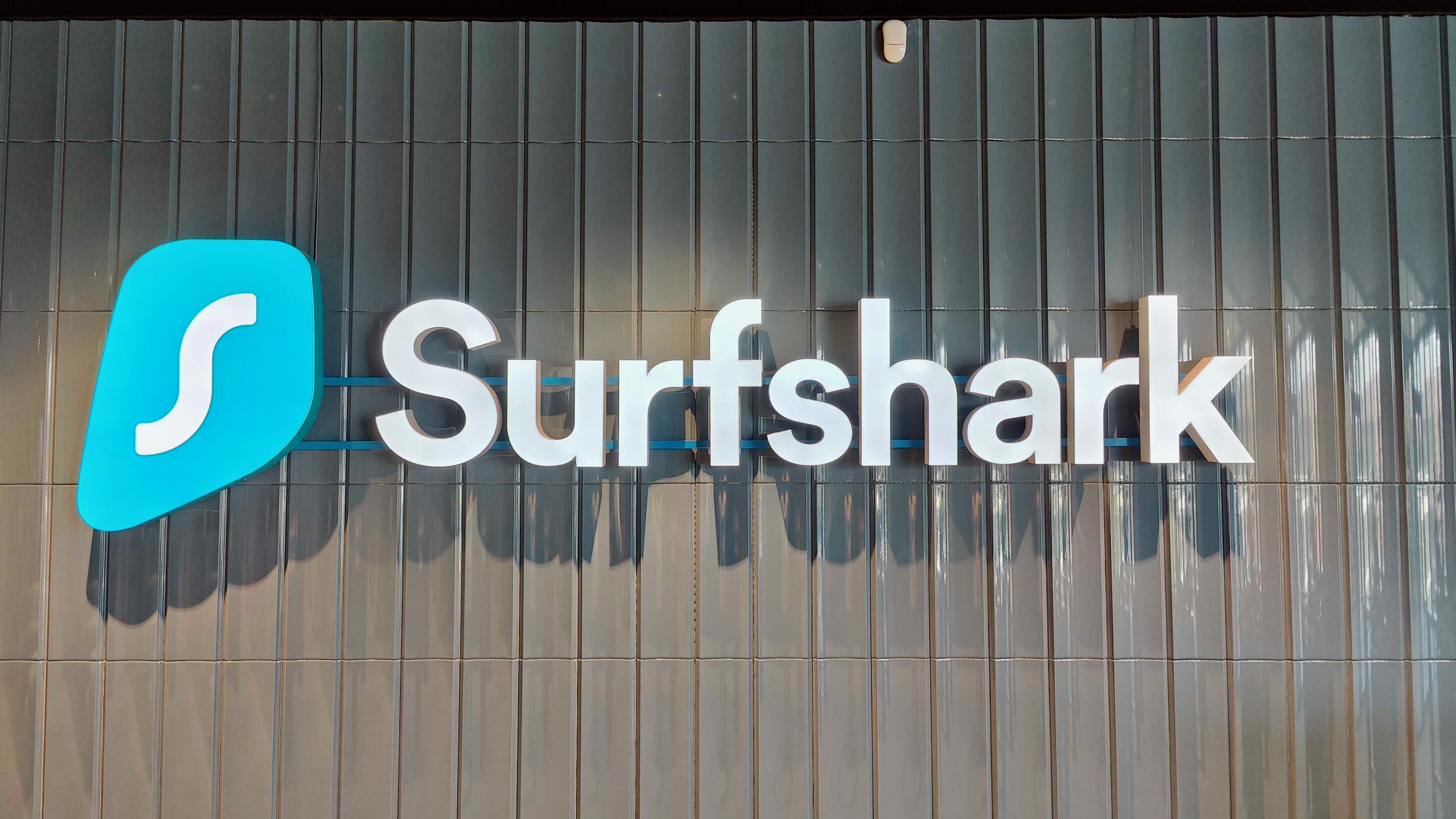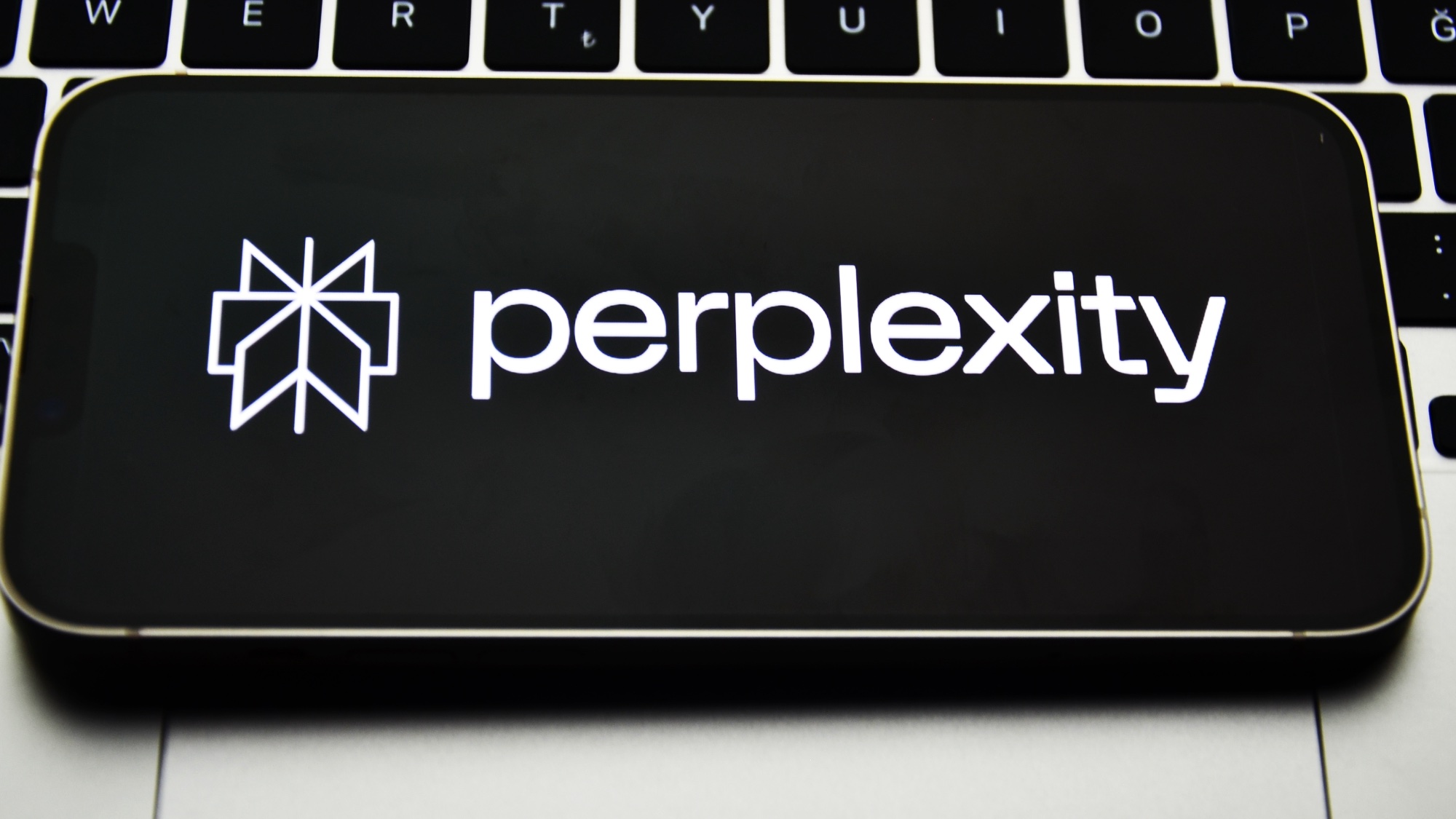"AI means that scammers don't even have to be good at scamming anymore!": Surfshark's CEO speaks on the web's biggest threats, VPNs giving back, and an ethos of simplicity
Moving into physical security and supporting good causes are top priorities

Located at the heart of the Naujamiestis district in Vilnius – Lithuania's burgeoning Silicon Valley – Nord Security's Cyber City campus is a hotbed for innovation. It's home to Surfshark, NordVPN, Incogni, Hostinger, and Oxylabs, while Vinted's headquarters sit just a few hundred meters down the road.
As such, it hoovers up a remarkable amount of Europe's youngest tech talent, attracting developers and engineers from Lithuania and neighbouring Poland, all the way over to Spain. Many start their careers here – and happily stay for some time.
That makes Surfshark's CEO, Vytautas Kaziukonis, something of an oddity in this environment. At just 42 years old, his experience is considerably more varied and his laps around the block more numerous than most on his team.
At 16, Vytautas – also known as "Par" – made his first foray into the world of tech start-ups, eventually finding success in the UK in online advertising. However, not long afterwards, he pivoted to cybersecurity. In 2018 he returned to his native Lithuania and founded Surfshark, intended to be a humanized privacy product in a world of inaccessible and needlessly complex alternatives – and here we are today.
Besides the tech, Vytautas is a professional rally driver, a certified pilot, and a week or so before we met up, he had won his first aerobatics competition. Certainly not one to stay locked away in the testing lab, then.
However, I did manage to grab him for half an hour in his office during my whistle-stop tour of Cyber City. Here's what he had to say on privacy, VPNs, and the future of Surfshark.
Discover the best Surfshark deals available right now.
What do you think is the biggest threat online today?
Vytautas Kaziukonis: There are issues like censorship that aren't getting any better, and VPNs are very important for combating this. However, from a wider security company's perspective, the bigger issue is the huge increase in data breaches and data misuse happening globally, not just in specific countries. It's an issue that affects everyone on a much larger scale.
That's where Surfshark is focusing most right now. We're asking ourselves, "How can we make the biggest impact?"
Phishing attacks are a great example. The rise of AI is exponentially multiplying these attacks, and automating them. It used to be that a real person had to be behind the scam, but now AI has become so good – we know this because many companies use it for support agents now – it's the perfect tool for scammers.
Instead of an individual using a SIM card to call people in person, they can now buy a complete solution, upload a list of exposed phone numbers or emails, and just wait for the money to come in. There's no effort involved – AI means that scammers don't even have to be good at scamming anymore!

What's the next big thing for Surfshark?
VK: We're always trying to innovate and create something new. As you know, the growing issue with AI and phishing is a massive concern, so we're working on a phishing prevention tool to help people detect malicious emails.
But on a broader level, my goal is for Surfshark to become a "super-app" – a go-to brand for all things security. Security is a very broad term and includes privacy, which is a crucial part of any security solution. If you don't have privacy, you're not secure.
My vision for Surfshark goes beyond digital security, and into the physical world.
Vytautas Kaziukonis – Surfshark CEO
This vision encompasses protecting your digital life – your communications, emails, phone numbers, and data – but also potentially your physical life. We're exploring what that could look like, and I hope Surfshark becomes the number-one leader in this space. When people think of security, I want them to think of Surfshark, and not just in the digital sense.
The name "Surfshark" was intentionally chosen from the beginning to support this vision – it was never "Surfshark VPN." Over the past seven or eight years, we've been shaped by our community, and we're at a stage where we can give back. Our recent release of free Surfshark DNS servers for privacy-conscious users is our way of thanking them. We hope to introduce more free tools for everyone, especially for those who can't afford paid solutions.
Do Surfshark's recent innovations go against the "make privacy simple" ethos you've developed?
VK: That's an excellent question, and a challenge that we've been facing. From the beginning, Surfshark was designed to be simple and approachable for everyone, whether you're an older person who doesn't use tech much, or a seasoned Linux user. Balancing those two can be difficult.
Being a single-purpose product would certainly make things easier – if we were just a VPN, it wouldn't be much of a challenge to make it simple. But, considering where we're headed, it's really an issue of user interface, not of the tools themselves being impossible to use.
Ultimately, it comes down to how you present the tools, onboard new users, and guide them in a way that helps them gradually learn to use all the features. I think we've done well with this in the past, and we'll continue to improve our user experience for everyone.

In 2021, Surfshark moved its headquarters to the Netherlands. Some people have an issue with this – why did you make this choice?
VK: In the early days of VPNs, it was common for companies to be based in places like the British Virgin Islands or Panama. But as Surfshark evolved into a broader security business, we wanted a more stable political and business environment that still offered favourable data retention laws – specifically, no laws that require data logging.
The Netherlands is home to many world-renowned businesses and NGOs, and it was a sensible choice. I know there's sometimes talk around the "Nine Eyes" alliance, but it's important to understand that local laws supersede any international data-sharing agreements.
Dutch law is very clear: companies are not required to retain user data. Therefore, even if we were sent a data-sharing request, we would have nothing to share. Our no-logs policy has been verified by independent audits, and we're always happy for any journalist to come and check everything to make sure for themselves.
So country of jurisdiction isn't as important as everyone makes out?
VK: Well, it is, to an extent. There are certain countries that a consumer would be right to be wary of – but the Netherlands is definitely not one of them. It's one of the most established countries in the world in terms of its political, economic, and legal systems, and there's nothing to worry about in that regard.
I also think that a few years ago, being based in Panama and the like was much more of a "selling point" than it is now. Either way, Surfshark has a pristine reputation, and we've never been involved in any data scandals, so I don't see any problem.
How does Surfshark give back?
VK: We support nearly a hundred different NGOs worldwide, including big organizations like Access Now, EDRi, the VPN Trust Initiative, and the Global Encryption Coalition. We also support smaller groups like the Open Observatory of Network Interference, Project Syndicate, Fight for the Future, and loads more – I'm sorry if I've forgotten any!
We also provide our products and consulting services for free to journalists around the world to help them in their work. For me, this is what makes our work so meaningful. Beyond being a business, we have the ability to help non-profit organizations and support their causes.
Of course, not all of these are my direct ideas – my job is to guide the broad agenda and make sure we're heading in the right direction. So many of our product innovations, as well as our initiatives like Surfshark's free DNS servers, come from the brilliant people working on the products day-to-day. I like to think that Surfshark offers an environment that allows the right people to develop what they think the world needs.
Vytautus, thank you for your time. I hope to see you soon!
VK: And you – thank you!
Get instant access to breaking news, the hottest reviews, great deals and helpful tips.

Mo has been rigorously testing, reviewing, and analyzing VPN services at Tom’s Guide for more than five years. He heads up the three-person Tom's Guide VPN team, and is passionate about accessibility: he believes that online privacy should be an option that’s available to everyone. NordVPN and ExpressVPN are the products he uses most on a daily basis, but he experiments weekly with all the top services, evaluating their privacy features, connection speeds across various protocols, and server reliability – among other things – so that he can make confident VPN recommendations that are backed by data. To see his latest advice, head over to Tom’s Guide’s best VPN and best free VPN guides.
You must confirm your public display name before commenting
Please logout and then login again, you will then be prompted to enter your display name.
 Club Benefits
Club Benefits





